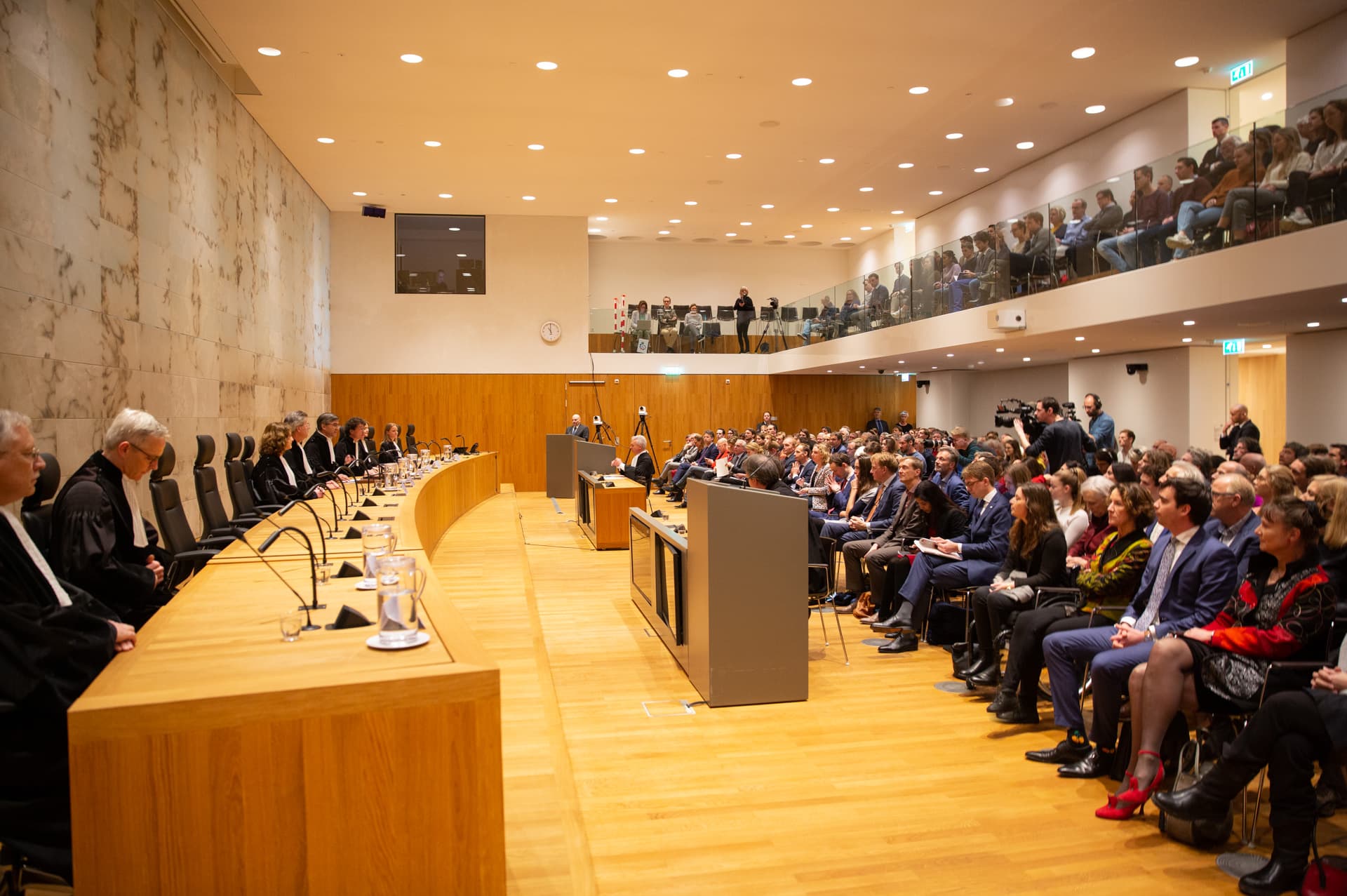
The Netherlands: The World's Legal Battlefield for International Disputes and High-Stakes Rulings
From conflicts in Ukraine to environmental cases in Brazil, Dutch courts shape global justice
From conflicts in Ukraine and the Middle East to salt mining in Brazil -- courts in the Netherlands have become Ground Zero in a global legal battlefield with far-reaching implications.
A strong legal tradition, home to many multinationals and international organisations and global ease of reach: the country has several trump cards making it the preferred legal arbiter of choice.
Three months into 2024, the city of The Hague's two most influential international courts have already cast headline-grabbing rulings on Russia's invasion of Ukraine and the spiralling conflict in Israel and the Gaza Strip.
In early March, the International Criminal Court (ICC) issued arrest warrants for two high-ranking Russian commanders, while in January the UN's top International Court of Justice (ICJ) handed down emergency measures telling Israel to boost aid in Gaza and to protect its population.
At the same time, a local civil court handed down a landmark judgement halting the supply of F-35 fighter jet parts from the Netherlands to Israel.
Victims of devastating salt mining in the Brazilian city of Maceio are suing petrochemical giant Braskem for compensation before a Rotterdam court -- one of many international compensation suits launched in recent years.
An Amsterdam court in February quashed an appeal by Russia in a record $50-billion case involving a compensation claim by former shareholders of the dismantled oil giant Yukos.
Recent years have also seen Dutch courts hand down rulings in major climate cases including one won by NGO group Milieudefensie in 2021.
In that case, the court ordered petrochemical giant Shell to curtail greenhouse emissions in what is considered the first major climate change ruling against a corporation.
Legal Hotbed
So why is the Netherlands a hotbed of international litigation? "I do think it is potentially easier to launch lawsuits in the Netherlands," said Cecily Rose, assistant professor of public international law at Leiden University.
"The legal bar for bringing collective actions is relatively low in the Netherlands, and this does have the effect of making it easier for NGOs to pursue public interest litigation in Dutch courts," she told AFP.
"Cases with international implications regularly reach the Dutch courts partly because the Netherlands is home to transnational companies with a global reach, such as Shell, Unilever or Heineken," added Leon Castellanos-Jankiewicz, senior researcher at the Asser Institute for International and European Law.
"These multinationals are subject to Dutch law and therefore the Dutch courts have jurisdiction over these entities and their dealings," he told AFP.
The country also has a highly skilled legal workforce and a strong belief in upholding the law. "The Netherlands has a tradition of placing strong emphasis on the development of international law," Castellanos-Jankiewicz said.
"Promoting the development of the international legal order is a permanent objective of Dutch foreign policy," he said.
Coupled with good infrastructure with global reach and the perception that the Netherlands was a "neutral ground" made it an appealing choice for parties seeking an impartial resolution, experts said.
Peace and Justice
The Netherlands also hosted several international courts and tribunals as well as agencies such as the Organisation for the Prohibition of Chemical Weapons and Europol, "embedding these organisations in the Dutch legal landscape," legal experts said.
Nestled on the Dutch coast between Amsterdam and Rotterdam, The Hague has always been seen as the "City of Peace and Justice" with its first international arbitral body, the Permanent Court of Arbitration, established in 1899.
Still existing today, the PCA laid the groundwork for later bodies established in the city, including the ICJ after World War II and the ICC, which opened its doors in 2002.
Other international courts, including the now defunct Yugoslav war crimes tribunal (ICTY) and the Kosovo Specialist Chambers also found a home here.
"Although the cases in these jurisdictions are completely independent from the Dutch courts as they belong to the United Nations system, they amplify many issues of global concern," Castellanos-Jankiewicz said.
For any enquiries or information, contact ask@tlr.ae or call us on +971 52 644 3004. Follow The Law Reporters on WhatsApp Channels.